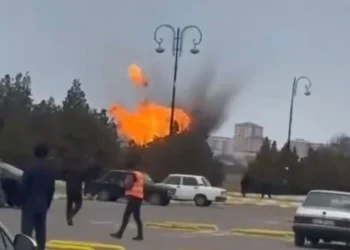The Batumi City Court is holding the final hearing in the criminal case against Mzia Amaglobeli, founder of Netgazeti and Batumelebi, with Georgia’s fifth President, Salome Zurabishvili, attending in a show of support.
Speaking to journalists outside the courtroom, Zurabishvili called Amaglobeli “a symbol of Georgia” and emphasized that today’s proceedings go beyond a single individual.
“As always, I continue to hope that justice will prevail — though we have been given little reason to believe it will. The truth is, if a verdict is issued today, it will not be a verdict against Mzia. It will be a verdict against all those complicit in this injustice — from day one to today — and they will be accountable before the country and before history,” she said.
Zurabishvili condemned what she described as a politically motivated case, targeting not only the media, but also the principles of democracy in Georgia. “What is happening today is not just about one person — Mzia is a symbol of Georgia,” she added.
Before arriving at court, the ex-President expressed her solidarity on social media, writing: “Today, we are Mzia! Her freedom is our freedom!”
Today’s court session will feature closing arguments from the defense, and it is possible that Judge Nino Sakhelashvili will deliver a verdict by the end of the day.
Meanwhile, supporters of Amaglobeli have gathered outside the courthouse, holding a peaceful protest and demanding justice.
Amaglobeli is charged under Article 353 of Georgia’s Criminal Code, which pertains to assaulting a law enforcement officer — a charge that carries a prison sentence of 4 to 7 years. The incident dates back to January 11, when Amaglobeli was briefly detained during a protest near the Batumi Police Department. Upon release, she was re-arrested shortly afterward, following an altercation in which she slapped the head of Batumi Police, Irakli Dgebuadze — an act prosecutors say qualifies as an attack on an officer.
Amaglobeli’s case has sparked widespread concern among media advocates, civil society, and opposition figures, who view the charges as a broader attack on press freedom in Georgia.














